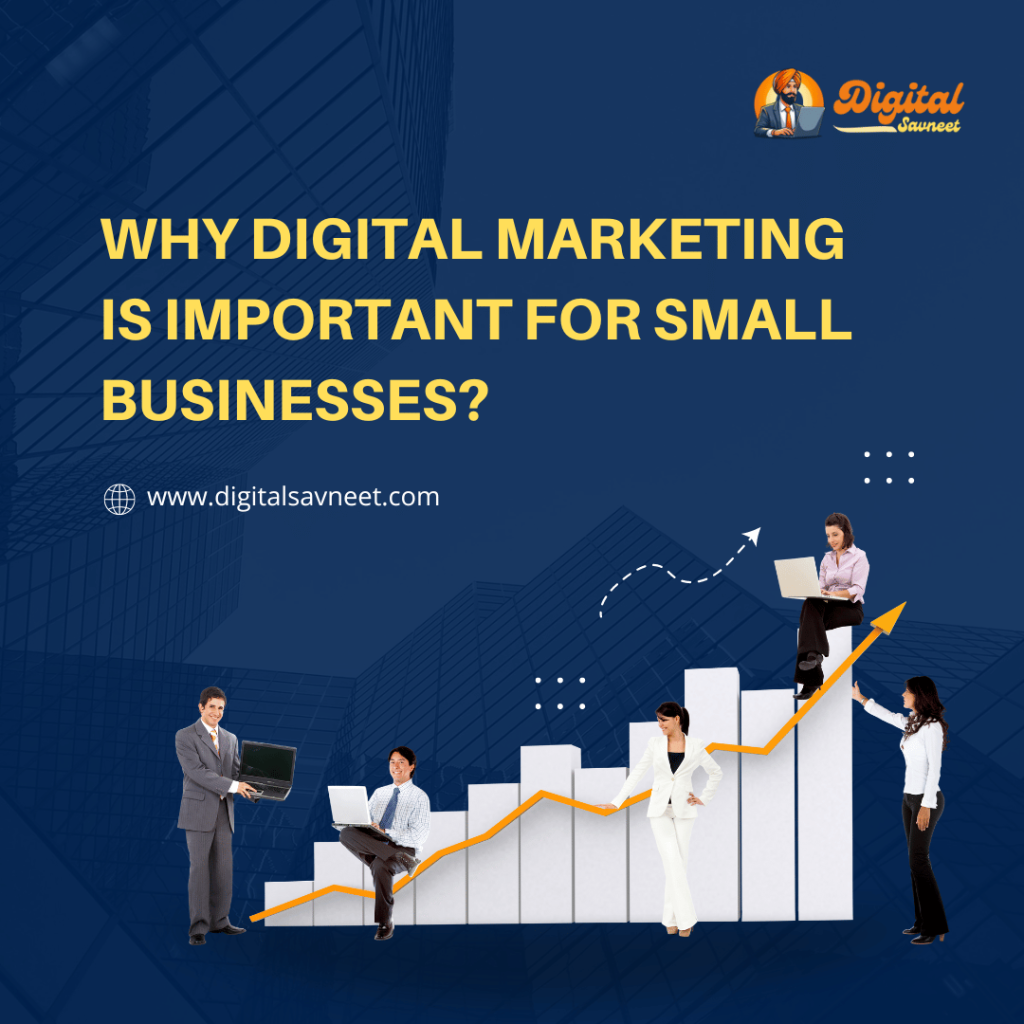Why Digital Marketing is Important for Small Businesses?

Bringing in that first customer is the main concern of small business owners when the business is in the initialization phase. They may take the conventional methods of advertising through print media and send coupons by mailers and sometimes using boards of billboards by the roadside. However, there’s a better and easier way: Internet marketing or digital marketing.
What is Digital Marketing?
Digital marketing is a form of marketing where a product or service or brand is promoted using digital channels or platforms or technology. It outlines the broad category of operations involved in marketing on the internet to target audiences. Here are some key components of digital marketing:
Search Engine Optimization (SEO): SEO is all about making your site and its content more appealing to search engines and ranking them higher on its results pages. They are: Increasing your search engine visibility and focusing on getting organic (non-paid) traffic to your site.
Social Media Marketing (SMM): SMM is a subset of internet marketing and involves the dissemination of a brand through social media such as Facebook, Instagram, Twitter, and LinkedIn and encouraging traffic to the company’s website.
Email Marketing: Email marketing implies the sending of personalized email messages to selected customers. It can be used to generate awareness, create interest, and develop prospects, as well as to build loyalty and develop repeat purchasing.
Local SEO: Local SEO is a technique to optimize your site to the users when the users search for their services locally. They are used by small companies in order to enhance their position in local maps and search directories, so that potential customers within a localized proximity may easily locate their business.
Online Advertising: Online advertising would cover paid strategies like PPC campaigns, display ads and social media ads. These ads can be quite focused and leave an impact.
How Digital Marketing Helps Small Businesses?
1. Establish Specific Objectives and Goals.
The next step in coming up with a digital marketing strategy is to determine the business targets. Whatever the aim may be; whether it is to increase people visiting your website, raise more potential customers or even increase sales, it is important to understand what you are aiming to achieve.
2. Identifying your audience.
In particular, one has to have an insight about the people who will be reading his or her work. Develop buyer profiles that include their location, tastes, pain points, and their Internet usage. Marketers should therefore, develop appropriate strategies based on this classification.
3. Define Your Brand
Your logo, color schemes and messages must match in the same or similar manner across digital platforms. A strong branding strategy helps to create brand awareness and a sense of brand integrity amongst your target market.
4. Track Competitor’s Prices.
Study and observe how your competitors act in the internet. Adopt positive traits and good practices from the best athletes. Identify areas that you can introduce opportunities by offering products and services that no one else is providing.
Getting Started with Digital Marketing
Digital marketing may be a bit overwhelming especially if it is new to you as a business owner. Here are some steps to get started:
Create a Professional Website: Promote your products and services digitally. First of all, your website is a way in which you market your business and therefore, it has to stand out.
Set Up Social Media Profiles: Establish business accounts on platforms like Facebook, Instagram and LinkedIn. Respond to your customers and address reviews.
List Your Business on Local Directories: Other platforms like Google My Business ensure that you are easily accessible to local customers.
Learn the Basics of SEO: Search engine optimization (SEO) is the process of optimizing your website for search.
Run Targeted Ads: Pay per click is another way of increasing the traffic to your website.
Create Valuable Content: Videos, infographics, and blog posts will engage your readers as well.
Leverage Email Marketing: Follow up leads and stay in the loop with customers.
Explore Social Media Campaigns: Segment your advertising.
Consider Affiliate Marketing: Collaborate with other businesses so as to boost sales.
Use Google Analytics: Track your progress and make changes to your strategies going forward.
In conclusion, digital marketing levels the playing field for small businesses, allowing them to compete with larger players. By embracing digital strategies, you can enhance your brand, connect with customers, and achieve your business goals.
I hope you find this blog post informative! If you have any other requests or need further assistance, feel free to ask.
